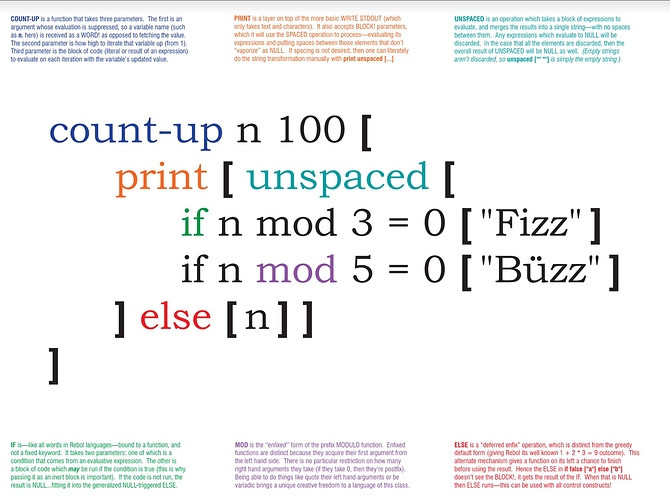At time of writing (circa September 2022, updating this old welcome from 2017) ...this site is largely a "design notebook" for the "Ren-C" branch of Rebol3.
For the uninitiated, it won't be easy to navigate! But don't be afraid to say hello in the "Introductions" subforum. If you tell us a little about yourself, we may be able to give you some pointers in the right direction for things to look at.
If you're seeking a top-level vision of what we're trying to accomplish, then the 2019 Philadelphia conference videos are probably a good place to get some sense of that.
For the answer to the FAQ of how Ren-C relates to other Rebol Variants:
Discussions of other derivatives of Rebol are welcome here, in the "Redbol" subforum:
- Red language written in "Red/System" bootstrapped from Rebol2 (notes)
- Oldes's fork of R3-Alpha
- Atronix's fork of R3-Alpha
- Boron language written in C (notes)
- Arturo language written in Nim (notes)
- "Meta" language written in Rebol (notes)
- Red.js web runtime for Red written in Haxe
- Rye language written in Go (notes)
- Topaz experiment compiled to JS (last commit 2012)
- World language written in C (last commit 2016)
"Rebol's a more modern language, but with some very similar ideas to LISP, in that it's all built upon a representation of data which is then executable as programs. But it's a much richer thing syntactically."
"Rebol is a brilliant language, and it's a shame it's not more popular, because it deserves to be."
—Douglas Crockford, founder of JSON, 2009 [link]

